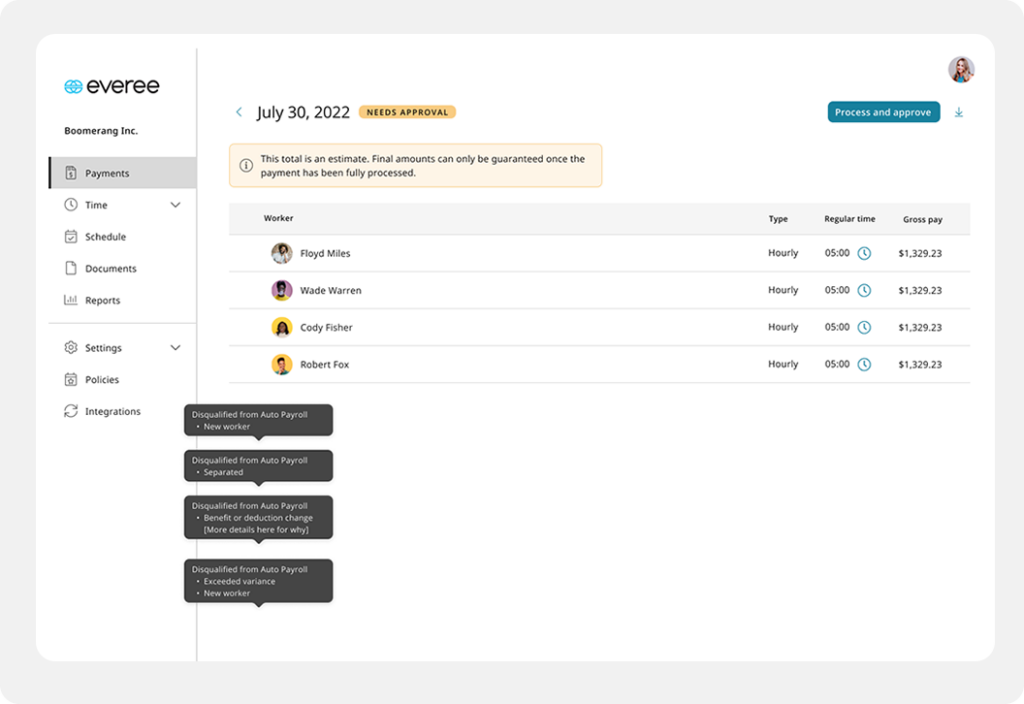Are you struggling to manage your customers effectively as a small business owner? With the business landscape becoming increasingly competitive, maintaining strong customer relationships is more essential than ever.
This blog post will provide useful insights into why utilizing Customer Relationship Management (CRM) software can be a game-changer for your small enterprise. Continue reading and discover how CRM software can not only improve your customer management but also significantly boost your sales revenue!
Key Takeaways
- CRM software helps small businesses effectively organize and analyze customer data, leading to improved customer management.
- Implementing CRM software can significantly boost small business sales and revenue by streamlining the sales process and running targeted email campaigns.
- CRM software helps streamline processes in small businesses by automating tasks, eliminating manual data entry, and providing centralized access to customer information.
What is Small Business CRM Software?
Small Business CRM Software is a tool designed to help businesses manage and strengthen their relationships with customers by effectively organizing and analyzing customer data.
Definition
CRM, or Customer Relationship Management software, is a versatile business tool. It enables tracking of customer interactions and management of relationships with clients. The nature of CRM software makes it essential for small businesses as it organizes customer data in an efficient manner.
This kind of software helps with personalizing communication leading to enhanced levels of satisfaction and loyalty among customers. Plus, CRM also offers a central database that allows easy access and analysis of vital client information.
As part of this immense functionality, CRM also improves the quality of customer service by presenting a complete view into the history, preferences, and interactions of each client.
This way, constructing new approaches towards communicating with repeat customers becomes simpler through insights gained from their behaviours and likes or dislikes within the system.
Types of CRM software
Categorizing CRM software can be done based on their primary functionalities and purposes they serve in a small business. These are the main types:
| Operational CRM | Delivers comprehensive customer service by providing an integration of customer data to track interactions effectively. |
| Analytical CRM | This type focuses on capturing, interpreting, and analyzing customer data for insightful decision-making processes. |
| Collaborative CRM | Encourages sharing of collected customer data among different departments in a business, promoting indented communication and collaboration. |
| Campaign Management CRM | Aids businesses in executing targeted email campaigns which are effective for marketing and sales efforts. |
| Sales Force Automation (SFA) CRM | Improves productivity by automating tasks related to sales such as pipeline tracking and client retention. |
| Constituent Relationship Management (CRM) | This type is specifically designed for nonprofits with features tailored towards donor management, volunteer tracking, and event planning. |
| Customizable CRMs | Allow businesses to build their own CRM system that fits their specific operational challenges and needs. |
Benefits of Using a CRM for Your Small Business
Using a CRM for your small business offers several benefits, including improved customer management, increased sales and revenue, and streamlined processes.
Improved customer management
Implementing CRM software leads to substantial improvement in customer management for small businesses. This technology centralizes all customer data, providing a comprehensive view of interactions, preferences, and history.
Such thorough knowledge allows personalized communication with each client, driving improved satisfaction and loyalty over time. The automation of tasks within the system frees up more time for meaningful interactions, amplifying the quality of service provided to customers while fostering stronger relationships.
Further leveraging insights into customer behavior derived from this collected data promotes effective nurturing of both new and repeat clients. Consequently, better managed customers translate into tangible business growth due to increased sales and consistent revenue inflow.
Increased sales and revenue
Implementing a CRM solution can significantly boost small business sales and revenue. With CRM software, businesses can streamline their sales process by effectively tracking leads, opportunities, and deals.
By having access to accurate and up-to-date information, the sales team can prioritize their efforts more efficiently. Additionally, CRM software allows businesses to run targeted email campaigns that align with customer preferences and behaviors.
This personalized approach increases the chances of converting prospects into customers, thus driving sales growth. Furthermore, by leveraging insights from customer data collected in the CRM system, businesses can identify cross-selling or upselling opportunities that further contribute to increased revenue generation.
Streamlined processes
CRM software is essential for small businesses because it helps streamline processes. This means that tasks and operations can be automated, saving time and increasing efficiency. With a CRM system in place, small businesses can eliminate manual data entry and paperwork, allowing employees to focus on more value-added activities.
Additionally, CRM software provides a centralized database where all customer information is stored and organized. This makes it easy for employees to access and analyze customer data, leading to better decision-making and improved overall business performance.
By streamlining processes with CRM software, small businesses can operate more smoothly and effectively, ultimately enhancing their productivity and success.
How to Choose the Right CRM for Your Small Business
To choose the right CRM for your small business, start by identifying your business needs and goals. Consider the needs of your team members as well. Determine the important features that you require from a CRM and evaluate different types of CRM software.
Create a budget for the implementation and ongoing maintenance costs. Finally, research top CRM platforms to find the best fit for your business requirements.
Identify your business needs and goals
To choose the right CRM software for your small business, it is essential to identify your specific business needs and goals. Consider factors such as the size of your customer database, the complexity of your sales process, and any operational challenges you face.
Determine what you want to achieve with a CRM system, whether it’s improving client retention, increasing sales, or streamlining processes. By understanding your business needs and goals upfront, you can make an informed decision when selecting a CRM solution that aligns with your objectives and helps drive growth.
Consider team members’ needs
CRM software is not just for managing customer relationships; it also has benefits for your team members. When choosing a CRM solution for your small business, it’s important to consider the needs of your team members.
Look for features that will help them work more efficiently and effectively. For example, consider a CRM that offers user-friendly interfaces and customizable dashboards so that each team member can access the information they need quickly and easily.
Additionally, choose a CRM with collaboration tools that allow team members to communicate and share data seamlessly. By considering your team members’ needs when selecting a CRM software, you can ensure their productivity and satisfaction, leading to better overall results for your small business.
Determine important features
To choose the right CRM for your small business, consider the following important features:
| Customization Options | Look for a CRM software that allows you to tailor it to your specific business needs and workflows. |
| Integration Capabilities | Ensure that the CRM can integrate with other tools and software you use, such as email marketing or accounting systems. |
| Mobile Accessibility | Check if the CRM has a mobile app or is accessible through mobile browsers, so you can manage customer relationships on the go. |
| Reporting and Analytics | Look for a CRM that provides robust reporting and analytics capabilities to help you track sales performance and customer trends. |
| User-Friendly Interface | Choose a CRM that is easy to navigate, with an intuitive user interface, so that your team can quickly adapt to using it. |
| Scalability | Consider whether the CRM can grow with your business and accommodate increased data storage or user requirements in the future. |
| Customer Support | Evaluate the level of customer support offered by the CRM provider, including training resources and responsive assistance. |
Evaluate different types of CRM
There are various types of CRM software available for small businesses. When choosing the right CRM for your business, consider the following:
- Cloud-based CRM: These systems are hosted on the cloud and can be accessed from anywhere with an internet connection.
- On-premise CRM: These systems are installed locally on your own servers, giving you more control over data security.
- Industry-specific CRM: Some CRMs are tailored to specific industries, offering features and functionality designed specifically for those businesses.
- All-in-one CRM: These CRMs offer a comprehensive suite of features for managing customer relationships, sales, marketing, and customer service all in one platform.
- Mobile CRM: With mobile-friendly capabilities, these CRMs allow you to access customer information and manage relationships on-the-go.
- Open-source CRM: These CRMs provide customizable solutions that can be modified to meet specific business needs.
Create a budget
Creating a budget is an essential step when choosing the right CRM for your small business. It helps you determine how much you are willing to invest in customer management software and ensures that you stay within your financial limits.
By setting a budget, you can narrow down your options and focus on CRM solutions that align with your needs and goals without overspending. Consider factors such as implementation costs, monthly subscriptions or licenses, and any additional fees for customization or support.
Taking the time to create a well-defined budget will help you make informed decisions and find the most cost-effective CRM solution for your small business’s specific requirements.
Research top CRM platforms
To choose the right CRM for your small business, it is important to research the top CRM platforms available. Here are some top CRM platforms to consider:
- Salesforce: A popular and widely used CRM platform that offers a wide range of features and customization options.
- HubSpot: Known for its user-friendly interface and robust marketing automation capabilities, HubSpot offers a comprehensive CRM solution.
- Zoho CRM: This platform provides an affordable option for small businesses with its extensive features and integration capabilities.
- Microsoft Dynamics 365: With its seamless integration with other Microsoft products, this CRM platform offers a holistic solution for small businesses.
- Pipedrive: Designed specifically for sales teams, Pipedrive offers intuitive pipeline management and sales tracking features.
2023 CRM Trends
In 2023, expect CRM software to become more sophisticated with advanced functionality and incorporate artificial intelligence. Explore these exciting trends shaping the future of customer relationship management.
Increasing sophistication and functionality
CRM software has come a long way in terms of its sophistication and functionality. With advancements in technology, CRM platforms now offer more advanced features and capabilities to meet the evolving needs of small businesses.
For example, many CRM systems incorporate artificial intelligence (AI) to automate tasks such as data entry and analysis, allowing small businesses to focus on more strategic activities.
Additionally, there is a growing trend towards industry-specific CRMs tailored specifically for small businesses, providing targeted solutions that address their unique operational challenges.
Incorporation of artificial intelligence
CRM software is constantly evolving and one of the key trends for 2023 is the incorporation of artificial intelligence (AI). AI technology is being integrated into CRM systems to enhance their functionality and provide even more valuable insights for small businesses.
With AI, CRM software can analyze large amounts of customer data in real time, allowing businesses to gain a deeper understanding of their customer’s preferences, behaviour patterns, and needs.
This enables small businesses to personalize their marketing strategies and communication with customers on a whole new level. Additionally, AI-powered chatbots are also being used in CRM systems to automate customer interactions and provide quick responses to inquiries, improving overall customer service efficiency.
Growth in new markets
Small businesses are experiencing significant growth in new markets with the help of CRM software. By expanding their reach and targeting customers in different regions or industries, small businesses can increase their customer base and revenue potential.
CRM solutions provide tools for effective market segmentation and customer targeting, allowing small businesses to tailor their marketing efforts to specific demographics or industries.
With the ability to track customer interactions and preferences, CRM software helps small businesses identify opportunities for growth in untapped markets and develop targeted strategies to capture market share.
Industry-specific CRMs for small businesses
Industry-specific CRMs are tailored to meet the unique needs of different sectors and can be a game-changer for small businesses. Rather than using a generic CRM software, small businesses can choose an industry-specific option that caters specifically to their business type, such as retail, healthcare, or real estate.
These specialized CRMs offer features and functionalities designed to address the specific challenges and requirements of particular industries.
By opting for an industry-specific CRM, small businesses can benefit from targeted tools for customer management, sales tracking, and marketing automation that are specifically tailored to their industry’s best practices.
This allows them to streamline their operations more effectively and maximize productivity. Additionally, these CRMs provide valuable insights into industry trends and customer behavior patterns that can help drive better decision-making and strategy development.
Small businesses in various industries can take advantage of the power of industry-specific CRMs to enhance customer engagement, improve operational efficiency, boost sales growth, and gain a competitive edge in their specific market niche.
Fewer adoption barriers
CRM software adoption barriers for small businesses are decreasing, making it easier for them to implement and benefit from these solutions. In the past, cost, complexity, and lack of technical expertise were common hurdles.
However, with advancements in technology and the availability of user-friendly CRM platforms specifically designed for small businesses, these barriers have been greatly reduced. Today’s CRM systems are more affordable, intuitive to use, and often require minimal IT support.
This means that even small businesses with limited resources can now embrace CRM software to improve customer management, increase sales revenue, and streamline their operations without significant obstacles getting in the way.
Conclusion
In conclusion, small businesses can greatly benefit from CRM software for managing customers. By using a CRM solution, they can improve customer management, increase sales and revenue, streamline processes, and enhance their overall business operations.
With the right CRM in place, small businesses gain an edge in today’s competitive market by effectively managing customer relationships and driving business growth.
Frequently Asked Questions
What is CRM software and why does my small business need it?
CRM (Customer Relationship Management) software helps businesses manage customer data, track interactions, and streamline sales and marketing processes. It can improve customer service, increase efficiency, and boost profitability.
How can CRM software benefit my small business?
CRM software can provide a centralized database of customer information, allowing you to better understand your customers’ needs and preferences. It also enables efficient communication with customers, improves lead management, and enhances overall workflow.
Can CRM software help me improve customer relationships?
Yes, CRM software allows you to build stronger relationships with your customers by providing personalized experiences based on their history and preferences. It helps you stay organized, respond promptly to inquiries or issues, and ultimately deliver better customer service.
Is CRM software easy to use for a small business owner like myself?
Most CRM software is designed with user-friendly interfaces that make it relatively easy for small business owners to navigate the system. Additionally, many providers offer training resources or support services to assist users in getting started.
How much does CRM software cost for a small business?
The cost of CRM software varies depending on factors such as the size of your business, features required, customization options, and licensing model (subscription-based or one-time purchase). Some providers offer free trials or basic versions at lower costs before committing to a full-scale implementation



